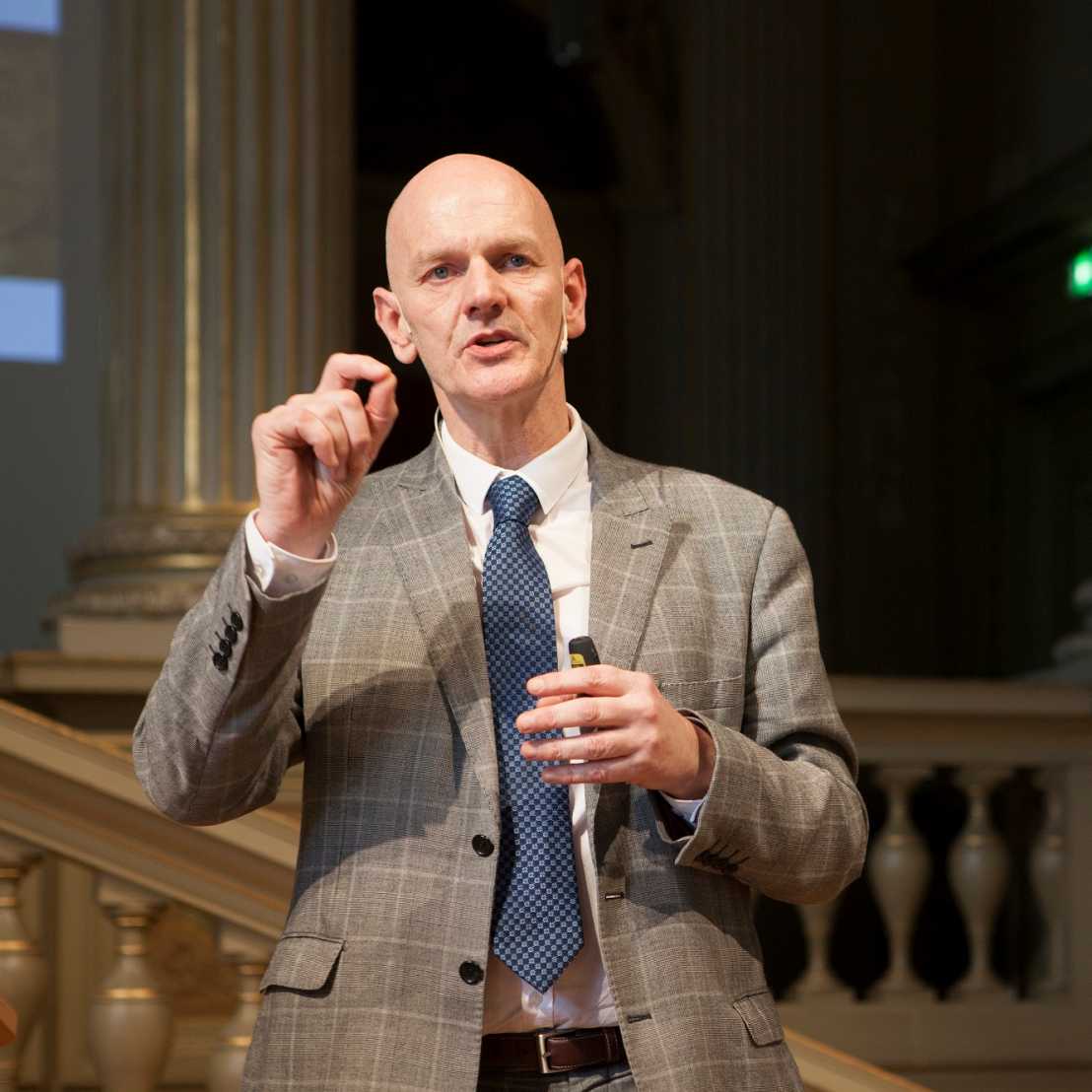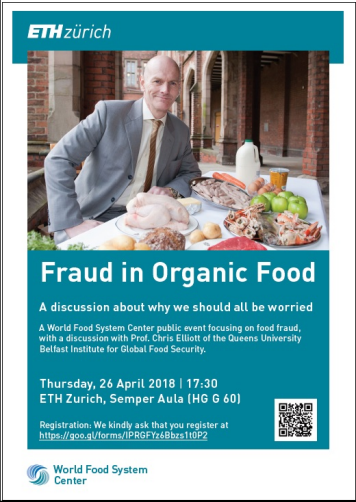Prof. Elliott discusses fraud in organic food at WFSC public event
At our recent public event, Professor Chris Elliott from Queens University Belfast led a discussion on fraud in organic food and how science can play a role in its detection and prevention.

Global retail sales of organic food products are estimated at 75 billion Euros annually. Organic food is particularly susceptible to fraud as it is marketed at a higher price and is labeled to guarantee certain standards, while what makes it “organic” is not visible from the outside.
Using organic food as a case study, Prof. Chris Elliott, Director of the Institute for Global Food Safety at Queen’s University Belfast, led a discussion about food fraud and the role that science can play in its detection and prevention. Prof. Elliott addressed the audience of 100 guests on 26 April in the Semper Aula at ETH Zurich.
In Prof. Elliott's keynote address, he introduced instances of food fraud from around the world, focusing on false claims fraud in organic. He mentioned that he has seen fraud is on the rise, and he desires to help before customer confidence in organic labeling is eroded.
How can we help fight food fraud criminals with science? Prof. Elliott also focused on the topic of detection, mentioning fraud in organic is difficult to detect, so numerous tools such as audits, inspections, and digital supply chains are used. He introduced various new analytical techniques used to identify fraudulent products, such as pesticide-residue or metabolites analysis.
WFSC Public Event: Fraud in Organic Food
 Prof. Elliott addresses audience in Semper Aula (Image: Miriam Kuenzli)
Prof. Elliott addresses audience in Semper Aula (Image: Miriam Kuenzli) Prof. Elliott addresses audience in Semper Aula (Image: Miriam Kuenzli)
Prof. Elliott addresses audience in Semper Aula (Image: Miriam Kuenzli) Discussion with Hans Ramseier, Patrick Aebi, Prof. Elliott, and Martijn Sonnevelt (Image: Miriam Kuenzli)
Discussion with Hans Ramseier, Patrick Aebi, Prof. Elliott, and Martijn Sonnevelt (Image: Miriam Kuenzli)
 Prof. Elliott discussing with audience members at reception (Image: Miriam Kuenzli)
Prof. Elliott discussing with audience members at reception (Image: Miriam Kuenzli)
 Martijn Sonnvelt discussing with audience members at reception (Image: Miriam Kuenzli)
Martijn Sonnvelt discussing with audience members at reception (Image: Miriam Kuenzli)
Hans Ramseler from BioSuisse and Patrik Aebi from the Swiss Federal Office of Agriculture then joined the discussion, providing a Swiss perspective on fraud in organic food. Hans Ramseier, Head of Quality Management at BioSuisse, mentioned that there is currently no analytical test which can reliably prove whether a product has been produced free of pesticides. However, a net of prevention and control measures increases the likelihood of fraud detection, such as strong and reliable independent inspections and controls, increased traceability, awareness of the public, and improved controls of buyers and retailers.
Patrik Aebi told the audience that as the demand for organic products increases in Switzerland, a deficit is supply occurs and value chains become more complex and international. Increased complexity impedes traceability and increases the risk for fraud. Mr. Aebi underlined, therefore, the importance of international collaboration on standards and control to increase transparency and the effectiveness of control measures.
The WFSC thanks all for making this public event such an interesting discussion. Special thanks to our guest keynote speaker Prof. Chris Elliott and our discussants Hans Ramseler and Patrik Aebi.

DownloadDownload flyer from event (PDF, 652 KB)vertical_align_bottom
For upcoming events from the WFSC, check out our event calender
